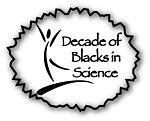Acknowledging some past confrontations with research communities, there is a general uncertainty when it comes to science and science research within the African-American community. However, I don't understand how or why this has translated to an overwhelming lack of coverage of science-related topics altogether.
My time teaching science to inner-city high school students as a NSF GK-12 Fellow really opened my eyes to something every science communicator should understand: I needed to relate the information to them in a way they would understand and in a medium they would readily consume. As my efforts to share science with under-served audiences grew, I realized that I needed to carry my message to them, not wait for them to come to me.
The problem is with the "push" versus "pull" models of communication. Many scientists communicate well, but are only allowed by the mainstream media to use the "pull" model which attracts only those who are already interested in science. The examples of "pull" media for science are popular science magazines, news sections of scientific journals, science sections of newspapers, science blogs, science-related radio shows, science-related shows on cable TV, i.e., all those places where people have a choice to seek this information or bypass it.
It is the mainstream media that controls all the "push" venues - the most popular print, radio and TV venues that are seen by everyone and where science could, potentially, be mixed in with the news coverage of other areas of life, thus delivering science stories to people who otherwise would never seek them. And it is there that the scientists have no access, certainly no access on their own terms, and thus it is there where the science communication is blocked. Scientists communicate all the time, and do it well, but only to the already receptive audience which actively seeks them - in special sections, or self-made media, carefully quarantined away from the mainstream news. The corporate media actively prevents the scientists from access to the non-receptive yet potentially interested audience.

Image credit: Everystockphoto.com
This so true. Looking specifically at this issue via an African-American or urban community lens, the pull forces are relatively weak compared to coverage about economics, politics, and celebrity gossip. However, outlets such as weekly Black Newspapers, Ebony/Jet, AOL BlackVoices or even BET TV and Radio One have amazing push power on their readership/listenership/viewership. Very large numbers people loyally tune into these media outlets and if they dared to include more science-related coverage people would consume it (and use it to inform their lives). Plus, it would make huge inroads to closing the science literacy gap (and eliminating anti-intellectualism) within some parts of the African-American community.
Just my thoughts,
DNLee






















4 comments:
I'm impressed that you had the opportunity to write for the American. I don't remember the Black newspapers in St. Louis publishing anything science related when I was growing up.
Didn't have science in school for that matter until high school. Thank goodness for PBS in my early years.
Are you thinking of approaching the larger Black media outlets?
I entirely agree. I am a big advocate of online science outreach, yet it is important to remember that much online science stuff only reaches people who are already reading about science on the internet. I wonder if it is possible to partner with a targeted audience outlet (e.g, AOL BlackVoice) to do a short-term science adventure blog? Like "Dr. Lee Battles Shrews!!!"? Maybe the adventure part can act a lure into the general cool science?
love your blogs on Scientific, I really liked your review. Nice information! Your content unique and meaningful.
Thanks
I like your blog and your efforts in science. Hopefully with science a better world will be made. Thank you.
Post a Comment